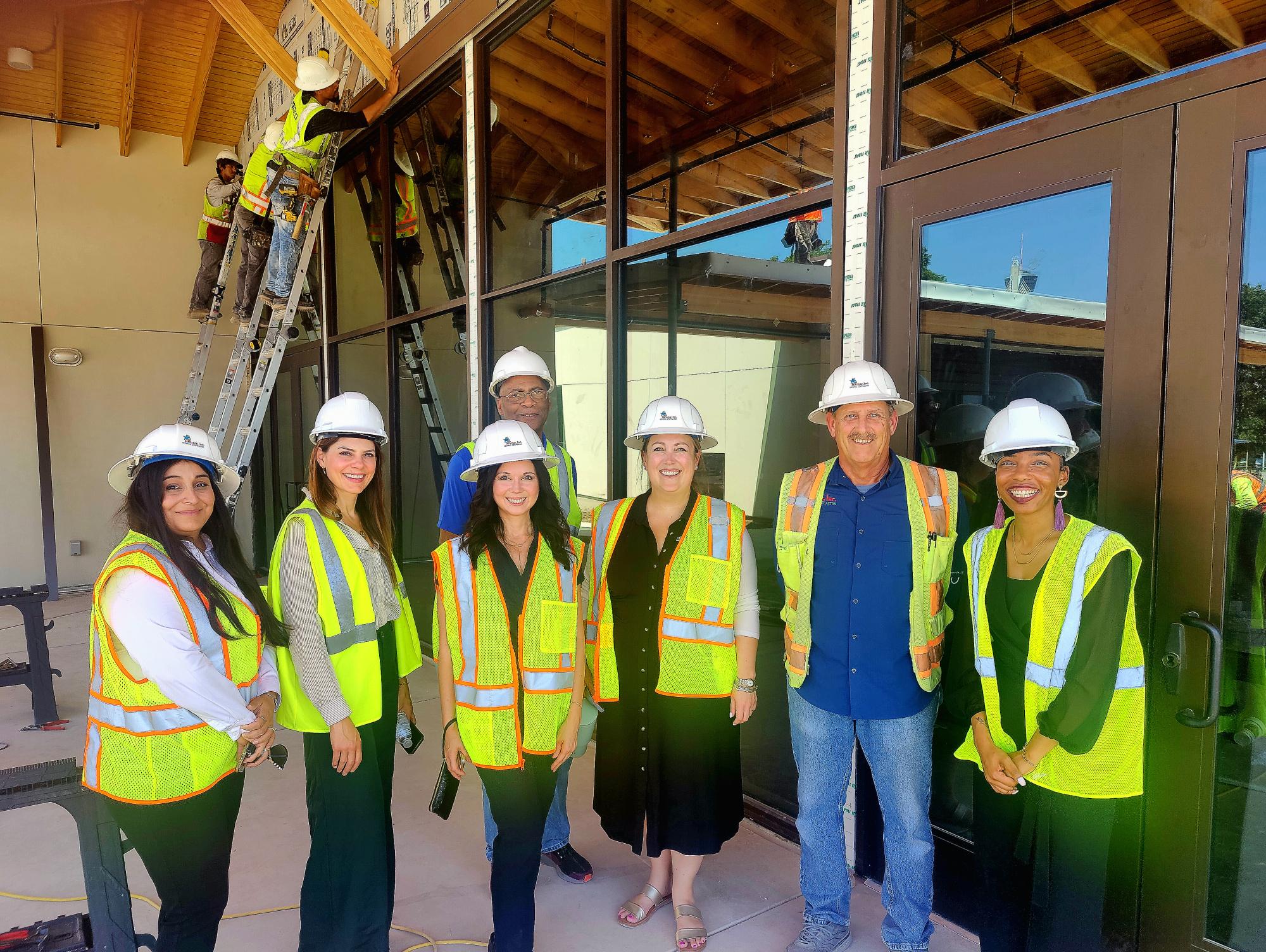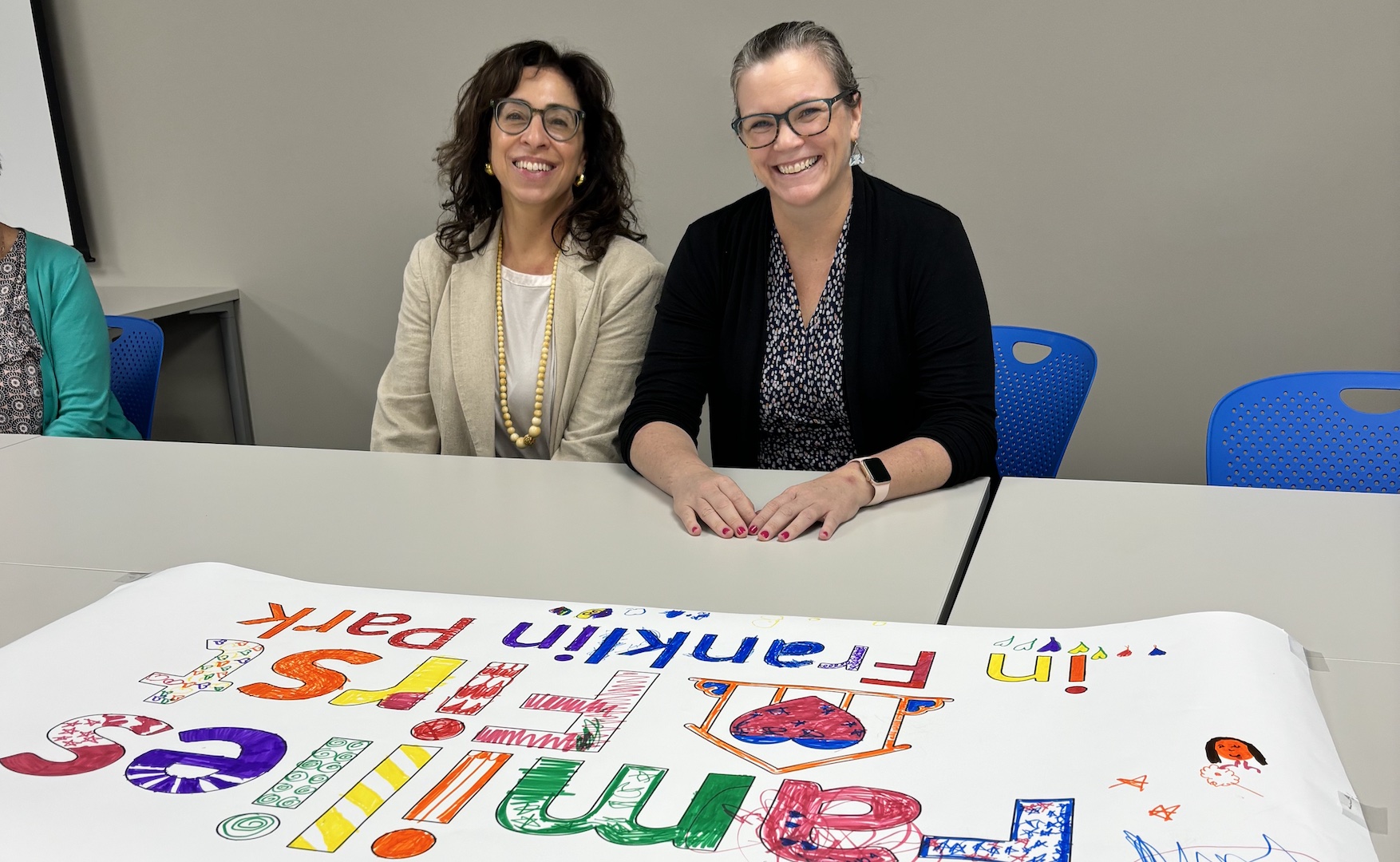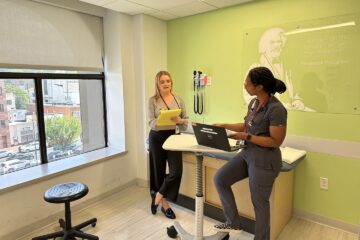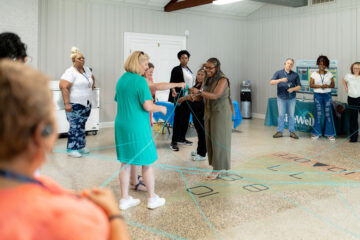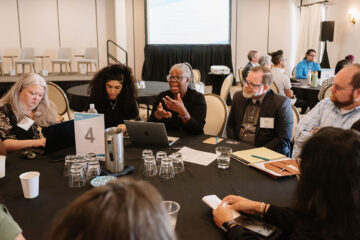In May 2023, The BUILD Health Challenge® announced its fourth cohort of awardees —13 collaboratives working to advance health equity through bold, community-centered, multi-sector strategies. As we reach the mid-point of the three-year BUILD award cycle late in 2024, we reflect on the progress, challenges, and emerging trends shaping this cohort’s journey.
BUILD awardees are advancing impactful solutions by deepening community partnerships, adapting to evolving contexts, and amplifying resident leadership. Their experiences underscore both the resilience and innovation required to drive systems change. Below, we highlight four key themes that emerged across the fourth cohort at this inflection point.
Opportunities and Challenges in Staffing Capacity
Staffing has been a critical focus for many awardees at this stage. Several collaboratives hired additional team members, which has strengthened their ability to deliver programs and engage residents more effectively. For example, initiatives focused on community-facing roles, such as community health workers, well-being specialists, and youth engagement coordinators, have led to improved outcomes.
However, challenges remain. Some collaboratives face disruptions due to staff turnover or gaps in execution when relying on volunteer-driven models. These issues highlight the importance of sustainable staffing structures that balance organizational capacity with community needs. For teams that have successfully navigated staffing challenges, there is a clear link between strengthened organizational capacity and their ability to achieve meaningful, resident-centered outcomes.
Policy and Political Dynamics Shaping Progress
Changes in the policy and political landscape have had a pronounced impact on awardees’ initiatives. Some collaboratives are navigating the effects of policy shifts such as the expiration of eviction moratoriums, the withdrawal of major healthcare systems, and political resistance to equity-centered approaches. These changes have amplified existing barriers to housing stability, healthcare access, and cross-sector collaboration.
Despite these obstacles, many awardees are demonstrating adaptability. Some are prioritizing political neutrality to sustain partnerships in politically polarized environments. Others are emphasizing the importance on harm prevention and targeted advocacy. These varied approaches reflect the complexity of responding to external forces while centering community needs.
Economic Development as a Cornerstone of Health Equity
Economic empowerment continues to emerge as a central priority across the cohort. Awardees are addressing financial literacy, workforce development, and entrepreneurial opportunities to improve economic stability—often as an integrated strategy to advance health and social outcomes.
For projects explicitly focused on economic development, resident feedback has helped shape initiatives such as credit-building programs, small business support, and workforce training. For awardees whose primary focus is outside economic development, the interconnectedness of financial security with broader health equity goals is emerging. This trend highlights the importance of holistic approaches that address root causes of inequity while empowering communities economically.
Amplifying Impact through Communications and Storytelling
Awardees are increasingly leveraging communications and storytelling to amplify their work, strengthen partnerships, and influence policy. By sharing their successes and learnings through regional and national platforms, collaboratives are connecting with broader networks to raise awareness, build momentum, and secure additional resources.
This focus on storytelling reflects a strategic shift as teams look toward long-term sustainability. Whether through data dashboards, public events, or narrative campaigns, awardees are showcasing their expertise and leadership to inspire action and shape systemic change. These efforts are not just about sharing progress but about building movements that center equity and community voice.
At the mid-point of the BUILD award cycle, the fourth cohort has taught us a great deal about the momentum of change. From expanding staffing capacity to navigating political dynamics, advancing economic development, and amplifying impact through storytelling, these collaboratives are creating pathways to more equitable systems.
As we look to the second half of the award cycle, BUILD remains committed to learning from and supporting these efforts. By centering community voice, fostering healthy cross-sector partnerships, and advancing bold strategies, awardees continue to exemplify what it means to drive community-centered, systems-level change.

